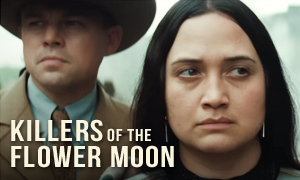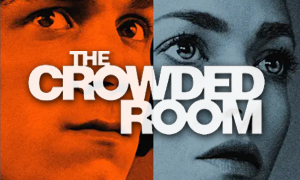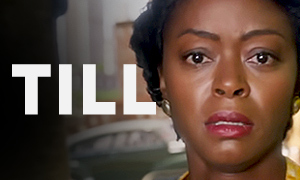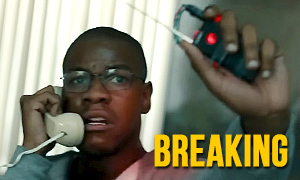The Girl from Plainville: History vs. Hollywood
Elle Fanning
Born: April 9, 1998
Birthplace:
Conyers, Georgia, USA
Michelle Carter
Born: August 11, 1996
Birthplace: Plainville, Massachusetts, USA
Colton Ryan
Born: June 10, 1995
Birthplace:
Lexington, Kentucky, USA
Conrad Roy III
Born: September 12, 1995
Birthplace: Mattapoisett, Massachusetts, USA
Death: July 13, 2014, Fairhaven, Massachusetts, USA (carbon monoxide poisoning)
Chloë Sevigny
Born: November 18, 1974
Birthplace:
Springfield, Massachusetts, USA
Lynn Roy
Born: December 1972
Birthplace: USA
Bio: Conrad Roy's Mother
Norbert Leo Butz
Born: January 30, 1967
Birthplace:
St. Louis, Missouri, USA
Conrad Roy II
Born: abt 1972
Birthplace: Massachusetts, USA
Bio: Conrad Roy's Father
Peter Gerety
Born: May 17, 1940
Birthplace:
Providence, Rhode Island, USA
Conrad Roy I
Born: March 14, 1948
Birthplace: New Bedford, Massachusetts, USA
Bio: Conrad Roy's Grandfather
Cara Buono
Born: March 1, 1971
Birthplace:
The Bronx, New York City, New York, USA
Gail Carter
Born: April 16, 1967
Birthplace: USA
Bio: Michelle Carter's Mom
Kai Lennox
Born: abt 1969
Birthplace:
Los Angeles, California, USA
David Carter
Born: March 13, 1964
Bio: Michelle Carter's Dad
Kelly AuCoin
Born: February 14, 1967
Birthplace:
Hillsboro, Oregon, USA
Detective Scott Gordon
Born: February 1974
Birthplace: USA
Michael Mosley
Born: September 16, 1978
Birthplace:
Iowa City, Iowa, USA
Attorney Joseph Cataldo
Born: April 10, 1966
Birthplace: Newton, Massachusetts, USA
Bio: Michelle Carter's Lawyer
Aya Cash
Born: July 13, 1982
Birthplace:
San Francisco, California, USA
Assistant DA Katie Rayburn
Born: July 1974
Birthplace: Boston, Massachusetts, USA
Bio: Prosecuted the Texting-Suicide Case
Chinasa Ogbuagu
Assistant DA Maryclare Flynn
Born: abt 1968
Birthplace: New Bedford, Massachusetts, USA
Renamed Teresa Adams in the Series
Ella Rubin
Born: September 2, 2002
Birthplace:
New York City, New York, USA
Sam Boardman
Bio: Michelle's Friend
Renamed Natalie Gibson in the Series
Jeff Wahlberg
Born: July 17, 1996
Birthplace:
Boston, Massachusetts, USA
Tom Gammell
Bio: Conrad Roy's Best Friend
Renamed Rob Mahoney in the Series
Where did Michelle Carter and Conrad Roy meet?
The Girl from Plainville true story confirms that Michelle and Conrad met in 2012 while they were each visiting relatives in Naples, Florida. They quickly discovered they were both from Massachusetts — Michelle from Plainville and Conrad from the coastal town of Mattapoisett, less than an hour away. According to the HBO documentary I Love You, Now Die: The Commonwealth v. Michelle Carter, which explores the texting-suicide case, she later told Conrad that she fell for him when they took a bike ride to the beach together.
How many times did Michelle Carter and Conrad Roy meet in person?
The Girl from Plainville fact-check reveals that during the two years they dated, they met no more than five times in person despite their respective Massachusetts towns being about 50 miles apart. They did exchange thousands of text messages in which they discussed intimate details about their lives, including Conrad's contemplation of suicide and Michelle's eating disorder. They talked about their love for one another, and they made additional plans to meet up but those plans fell through. They also shared numerous emails and phone calls.
Was Conrad Roy abused?
Court documents reveal that Michelle Carter's lawyer, Joseph Cataldo, argued that Conrad had been verbally abused by his grandfather and uncle and hit by his father. In February 2014, Conrad Roy's father was arrested for assault and battery after attacking his son. A photo of his son's injuries is displayed below. In arguing what became known as the "texting-suicide case," Cataldo attempted to convince Judge Lawrence Moniz that the father's abuse was the reason for Conrad Roy's suicide. -Radar Online
Had Conrad Roy previously attempted suicide?
Yes. In researching how true is The Girl from Plainville, we learned that Conrad had battled depression and social anxiety and had been hospitalized for a recent acetaminophen overdose when he was 17. Prior to Conrad Roy's death, the teen had attempted suicide a total of four times (People). Things had gone downhill for Conrad after his parents' divorce in 2011 and he had attempted suicide not long after in 2012. Conrad had seen counselors and therapists for help, including a cognitive behavioral therapist in the weeks before his death in July 2014. A little more than a week prior to his death, he had tried to take sleeping pills in another failed suicide attempt. Much of this became known when detectives reviewed Michelle Carter's text messages.
Did Michelle Carter have an eating disorder?
Yes. Her eating disorder had started around age eight or nine. She also suffered from depression and allegedly engaged in self-harm by cutting. Friends told New York Magazine that she had made references to spending time at McLean Hospital, a psychiatric hospital in Belmont, Massachusetts that had also treated author David Foster Wallace and mathematician John Nash.
Had Michelle Carter tried to talk Conrad Roy out of suicide prior to encouraging him?
Yes. In researching The Girl from Plainville true story, we learned that on several occasions, Michelle Carter had dissuaded him from taking his own life. She also encouraged him to seek psychiatric help prior to her attitude changing in June 2014, the month before Conrad Roy's death.
Before her change in attitude, she had told him they should both get help for their issues, texing, "would be so good for you and we would get thru our issues together. Think about it. You aren't gonna get better on your own, you know it no matter how many times you tell yourself you are. You need professional help like me, people who know how to treat it and fix it."
Did Conrad Roy have his tugboat captain's license?
Yes. In exploring The Girl from Plainville fact vs. fiction, we discovered that Conrad had worked with his father, grandfather and uncle in the family's marine salvage business, Tucker-Roy Marine Towing and Salvage, Inc. After attending night classes at the Northeast Maritime Institute, Conrad earned his captain's license in the spring of 2014.
Did Conrad Roy and Michelle Carter discuss the best ways to commit suicide?
Yes. As their texts evolved, they began to discuss different ways to commit suicide. Michelle's desire to help Conrad get better changed in the month before his death. She appeared to grow frustrated with Conrad and warned him, "You better not be bullshitting me and saying you're gonna do this and then purposely get caught." She suggested to him different ways he could do it, texting messages like, "What about hanging yourself or stabbing yourself?" and "Why don't you just drink bleach?" -Esquire
It was actually Michelle Carter who helped give him the idea of how he was going to kill himself. "Carbon monoxide poisoning is the best option..." she texted. "If you fall asleep in your car while it's running in a garage, it will kill you. ...And there's no pain." Conrad then texted back that he could use a portable generator from work and turn it on in his truck. He told Michelle she was a "genius" for coming up with the idea.
Were Conrad Roy and Michelle Carter both taking psychiatric medication?
Yes. The Girl from Plainville fact-check confirms that one of the medications that both Conrad Roy and Michelle Carter had been prescribed was the antidepressant Celexa (citalopram) to treat depression and anxiety. Carter had been prescribed the drug in 2014, about three-and-a-half months prior to Conrad Roy's suicide. It was during that time that her attitude toward Roy taking his own life changed and she began to encourage him to do it.
A psychiatrist named Dr. Peter Breggin testified for the defense that the drug can inhibit impulse control and "disrupt frontal lobe function," stating that "the young brain is more susceptible to harm" from that type of drug. He argued that Carter's medication could have affected her ability to empathize and reason, in addition to causing her to become aggressive, hostile and manic. He stated that people who knew her had noticed a change in her behavior from someone who is caring and loving to someone who is irrational and irritable. Breggin described Carter as being "involuntarily intoxicated," adding that "she had no notion of the wrongfulness she was doing."
In terms of the effects of Celexa on Conrad Roy, who was also taking the drug, it can increase thoughts of suicide in young people, which is stated on the box.
Is Michelle Carter's best friend Susie Pierce based on a real person?
In the Hulu series, Susie Pierce (Pearl Amanda Dickson) is not only Michelle Carter's best friend, she is also in love with Michelle. We found no evidence of a real-life friend named Susie Pierce. However, it seems she could have been inspired by Alice Felzmann, a girl who Michelle became close friends with earlier in 2012 while playing on the travel softball team (prior to Michelle meeting Conrad in Florida). They had weekly sleepovers and Michelle had even lost sleep over their friendship.
Regarding her feelings about Alice, Michelle texted a friend, "I'm obsessed with her like idk how to stop. Every love song or whatever, it's her I think about." In a separate message to the same friend, she texted, "I thought it was a phase at first like I thought we were just really good friends. But we started talking like a relationship would, flirting and stuff. Like idk if I am bi. I guess because I never had that type of relationship with another girl to really tell." While the show depicts Alice (Susie) as being the first to have romantic feelings, the above text suggests the opposite could be true. Eventually, Alice stopped responding to Michelle out of the blue. -TheCinemaholic
Jesse Barron interviewed Alice Felzmann for his Esquire article "The Girl from Plainville." Alice had brought her mom Kelly with her to the interview and it became clear that Kelly had been a big part of why Alice cut ties with Michelle Carter. "You're going to cut all ties," Kelly remembered telling her daughter at the time. A year later, Michelle sent Alice a handwritten love letter but Alice's mom never gave it to her. Michelle later claimed that Alice was her first kiss, but according to Alice's mother (not Alice), Michelle had made that detail up.
Did Conrad Roy suggest to Michelle Carter that they should be like Romeo and Juliet?
Yes. In investigating how true is The Girl from Plainville, we discovered that Conrad had suggested they should both take their own lives so they can be like Romeo and Juliet, the young lovers who killed themselves in William Shakespeare's play. According to Michelle Carter's lawyer, Joseph Cataldo, Michelle replied by saying she didn't want them to die. -The Sun Chronicle
How many times did Michelle Carter ask Conrad Roy when he was going to kill himself?
By examining Conrad Roy's text messages with Michelle Carter, detectives discovered that in the last week of his life, Michelle asked him when he was going to kill himself more than 40 times. -20/20
Did Michelle Carter encourage Conrad Roy to take his own life?
Yes. While she first encouraged him to get professional help, her texts to her boyfriend, Conrad Roy, started to change in tone in June 2014, the month before his death. She became frustrated that he wasn't following through with it, texting, "So I guess you aren't gonna do it then. All that for nothing. I'm just confused. Like you were so ready and determined." Conrad responded, "I am gonna eventually. I really don't know what I'm waiting for but I have everything lined up."
On the morning of his suicide, Conrad started to again back off going through with his plan to end his life, telling Michelle Carter in the early a.m. that it was "already light outside" and that he was "gonna go back to sleep." She disagreed, replying, "No. It’s probably the best time now because everyone is sleeping. Just go somewhere in your truck and no one is really out there right now because it’s an awkward time. If you don’t do it now you’re never gonna do it, and you can say you’ll do it tomorrow, but you probably won’t. Tonight? Love you."
How did Conrad Roy kill himself?
18-year-old honor student and recent high school graduate Conrad Roy was found dead inside his truck in a Kmart parking lot in Fairhaven, Massachusetts on July 13, 2014. He had committed suicide by way of carbon monoxide poisoning the day prior, July 12. Roy had placed a gas-powered water pump in the backseat of his truck and started the pump with the windows up. It is believed that it took up to 20 minutes for him to succumb to the poisonous fumes.
Did Michelle Carter tell Conrad Roy to get back in the truck?
Bristol County judge Lawrence Moniz said that he found Michelle Carter guilty of involuntary manslaughter not because of her prior text messages but rather due to her phone calls with Conrad Roy when he was in his truck gassing himself. Particularly incriminating was when he exited the truck and Carter encouraged him to "get back in." Of that moment, Judge Moniz said, "She [instructed] Mr. Roy to get back into the truck, well-knowing of all of the feelings that he [had] exchanged with her: his ambiguities, his fears, his concerns. She did nothing. She did not call the police or Mr. Roy's family. Finally, she did not issue a simple additional instruction [to Roy]: 'Get out of the truck.'"
However, there is no audio of Carter's phone call with Roy where she tells him to get back in the truck. There are only call records indicating that the two were talking just before he died. The judge based his verdict on the text message displayed below, which Carter later sent to her friend Sam Boardman. She tells Boardman that she told Roy to get back in his truck. Dr. Peter Breggin, who testified for the defense, pointed out that Carter had a history of lying to her friends and we don't know for certain that she wasn't lying to Boardman.
Was Michelle Carter voted by classmates "most likely to brighten your day"?
Yes. Classmates recalled Michelle's uplifting personality. The Girl from Plainville true story reveals that she was in fact voted "most likely to brighten your day."
Did Michelle Carter listen over her cell phone as Conrad Roy died?
Yes. She told friends that she continued to listen on her cell phone as Conrad succumbed to carbon monoxide while sitting in his truck. -People
Did Michelle Carter repeat lines from Glee when talking about Conrad Roy?
Yes. Carter was obsessed with the TV show Glee and the show's stars, Lea Michele and Cory Monteith, who were dating in real life like their characters Rachel and Finn were on the show. As seen in The Girl from Plainville, Carter would repeat lines from the show when talking about her feelings for Conrad Roy. She would even repeat things Lea Michele said in real-life in interviews when discussing Monteith, who died of a drug overdose in 2013. For example, in Michelle Carter's Facebook post (pictured below) on Conrad Roy's timeline the day after his death, she used the phrases, "we were endgame" and "he was my person," which are both lines from Glee. She had also recently seen The Fault in Our Stars and borrows the quote, "Some infinities are bigger than other infinities."
Is it possible that Conrad Roy's psychiatric medication played a role in his suicide?
Conrad had been taking the antidepressant citalopram under the brand name Celexa, which includes a boxed warning stating that it may increase suicidal thoughts and actions in individuals under age 24. Given how incriminating Michelle Carter's text messages were in encouraging Conrad, especially on the day of his suicide, it would have been hard to argue that the drug's possible side effects admonished her of a significant amount of guilt. Still, there's certainly an argument to be made that the drug could have helped to spark his somewhat ongoing thoughts of suicide, which were eventually encouraged by Michelle.
Like Conrad, Michelle Carter had started to take Celexa for depression. Her change in attitude toward Conrad and her encouragement of his suicide seems to correspond to when she started taking the drug in June 2014.
Where can I read Conrad Roy's suicide note to Michelle Carter?
Conrad Roy's suicide note to Michelle Carter, which is briefly seen in The Girl from Plainville Hulu series, is featured in its entirety below. It is followed by an image of Conrad Roy's suicide note to his father, Co.
Did Michelle Carter attend Conrad Roy's funeral?
Yes. Conrad Roy's mother, Lynn Roy, and younger sister, Camdyn Roy, testified that Michelle Carter had attended his wake and funeral with her mother. Like in Hulu's texting-suicide case series The Girl from Plainville, the true story confirms that Michelle never mentioned her knowledge of Conrad Roy's suicide plans to them. She later texted Camdyn asking for some of her brother's ashes. -The Sun Chronicle
Did Michelle Carter plead not guilty?
Yes. During our investigation into The Girl from Plainville fact vs. fiction, we confirmed that she pled not guilty to manslaughter in relation to Conrad Roy's death in what became known as the "texting-suicide case." Prosecutors planned to make the argument that Michelle Carter used "emotional coercion" via text messages to convince Roy to take his own life. She faced up to 20 years in prison. Michelle remained free on bail for three years until the trial in 2017. She waived her right to a jury trial and left it up to the judge to decide the case.
Why did Michelle Carter waive her right to a trial by jury?
The defense team knew that Michelle Carter's text messages were damning and would likely heavily sway the jury toward a more severe punishment. They were hoping that by allowing the judge to decide the case, he would view the texts with a cooler head and more rationally, focusing instead on causation and the definition of the statute. -20/20
What was Michelle Carter's sentence?
After being convicted of involuntary manslaughter on June 16, 2017 at age 20, Michelle Carter was sentenced to two-and-a-half years in prison (Esquire). After an appeals process, her sentence was reduced to 15 months in prison plus five years probation with the eligibility of parole after serving 11 months of her sentence. She was incarcerated at the Bristol County Women's Center in North Dartmouth.
When did Michelle Carter get out of prison?
Michelle Carter was released more than three months early on January 23, 2020 for good behavior, having spent less than a year in prison. A spokesperson for the Bristol County Sheriff's Office said that she was "a model inmate," adding, "She has attended programs, had a job inside the jail, has been polite to our staff and volunteers, has gotten along with other inmates, and we've had no discipline issues with her whatsoever." She was to remain on probation until sometime in 2021.
Where is Michelle Carter today?
Carter has remained out of the public eye since her release from prison in January 2020. Her probation will end on August 1, 2022. While on parole, she is unable to profit from the publicity around her case. However, once her parole is over, she'll be able to make money off her story. It's hard to imagine too many people would be surprised if news breaks that a Michelle Carter memoir is in the works.
Link-to-Learn More:







